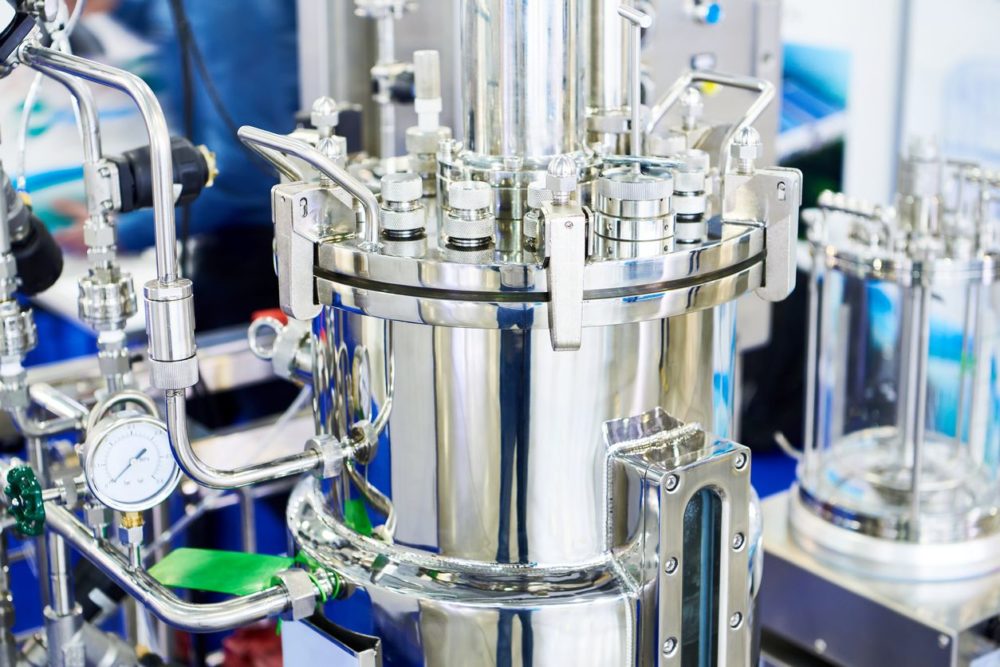As more precision fermentation startups emerge, the need for more production capacity also increases. US-based Synonym isn’t itself a fermentation startup. Instead, the company connects such startups with the infrastructure they need to produce at greater volumes. It does so through its finance and development platform that serves both startups in need of infrastructure and investors wanting to fund it.
Synonym raised pre-seed capital earlier this year from Andreessen Horowitz, Blue Horizon and others.
This week, the company also released Capacitor, a free database of microbial fermentation facilities worldwide that startups can use to find production space and capacity. Synonym partnered with the Good Food Institute, Blue Horizon and the Material Innovation Initiative for Capacitor.
“By putting some of this information online, we saw the opportunity to create a more transparent market,” Synonym co-founder and chief business officer Joshua Lachter tells AFN. “There’s so much more demand for capacity, and not all of is taken.”
Lachter (JL) recently chatted with AFN about the promise of this new tool as well as his own journey into the biotech industry.
AFN: When and why did you start Synonym?
JL: I co-founded Synonym at the beginning of the year.
We’re living on the cusp of a revolution that’s going to be powered by biology. That biology is going to be the thing that gives us so many of our materials, energy, fuels, and food. But the ability to produce it at staggering volumes just doesn’t exist.
There’s so much innovation happening in synthetic biology. Just to take food as an example, you have a handful of companies working on milk, a dozen more working on things like yogurt and cheese, on egg protein and then on lipids and fats and all sorts of things.
As GFI has helpfully laid out, [these companies] generally fall into two camps: cultivated and cellular ag stuff and then the precision fermentation.
In general, precision fermentation is a little more mature and kind of standardized already in its methods. The impediment to getting to market is not so much a technology chasm that needs to be overcome, but a financing chasm. All of these hundreds of companies have amazing products. But having an amazing product that you can’t actually get into the supply chain doesn’t really help the market.
The disconnect we found is that you have to separate the developers of these products from the actual means of production. So long as the means of production are intertwined. the financial markets are going to see the means of production, the ability to get to the market, as too risky.
If you’re putting up the money for a specific company’s $200 million fermentation facility, you have to believe that’s the company that’s going to be able to execute on that facility to actually build the physical infrastructure.
Most of these companies don’t have the expertise — nor should they — because they’re food scientists and engineers. [Investors] have to believe that they can operate the facility to its full potential, and believe they can sell the full amount of this facility in the market.
That’s a lot to digest as an investor. As we’ve seen, investors haven’t really bought it and there aren’t new facilities going up.
AFN: Tell us more about Synonym’s solution to this.
JL: Synonym is the financing and development platform, and not only for food but also for materials and everyone else doing fermentation.
Food from a biomass perspective is among the things that needs the most biomass; there are all sorts of resins and polymers and solvents that will be precision fermented, that will be important parts of the supply chain. Some of them you get a lot of, some of them you need just a little bit of, but in terms of actual biomass, we need a lot protein. [The industry] simply doesn’t have the infrastructure right now.
Our answer is to show that the means of production can be separated from the companies that are actually producing profits in those facilities.
In some ways, it’s totally similar to how other industries have evolved. Twenty years ago, data centers existed, but they weren’t asset classes in the way that they are. Controlled environment agriculture is similar. Twenty years ago, [it was] kind of fringy, not standardized, not clear if they were economically viable. I think they’ve crossed that chasm. Also cell phone towers, third-party logistics warehouses, there’s all sorts of categories of industrial real estate that have crossed this chasm. Synbio hasn’t yet.
And unlike some of those other examples synbio has the complexity of being a biological process that’s not as straightforward as building a warehouse or a data center.
And so our solution is to say, if you can begin to productize what those facilities look like, you can tap into a financing mechanism that hasn’t been available to this industry before. And that’s our overall goal. We work with Synbio companies to get them the infrastructure that they need.
In much the same way that a startup internet company building its own servers is a terrible idea, it’s really hard to build infrastructure. It’s really hard to go through the engineering, design, and permitting. All of that is exceptionally difficult and time-consuming and at the end of it all a single company would have with one facility there are ultimately going to be multiple so I think it’s clear that a third way is necessary and we want to represent that third way.
AFN: Are you working with other companies now?
JL: We haven’t announced any partnerships, but I can say that we are actively engaged with several companies in the synbio ecosystem who need capacity. We’re providing a financial route [for them].
AFN: What led you to initially pursue working in the biotech industry?
JL: My co-founder Edward [Shenderovich] has a background as a foodtech investor. And he has been very interested in the intersection of novel uses of real estate.
For my part, I mostly have a background in tech and finance, but kind of in parallel have been doing a bunch of biotech investing, just angel investing in the past 10 years. I’m a big believer in the power of biology to solve a lot of our problems. We need a kind of new paradigm for how we make stuff and biology represents the oldest form that we know of. Biology has been doing it longer than any force we know of in the universe, and it’s figured out some pretty cool stuff. Along the way.
What inspired me is honestly the purity of the medium. But again, it’s it remains only a pipe dream to have these products ubiquitous until you can satisfy the means of production. We have to build this infrastructure very quickly and we can but it needs to be a really sound financial investment and so that’s that’s what we’re trying to do.
AFN: How did you like up with GFI and others for Capacitor?
JL: GFI and MMI, are incredible, extraordinary resources to the whole industry. In early conversations with GFI, and many others in the industry, we would ask what good databases are were of available manufacturing capacity. Everyone would give the same answer — sort of a shrug.
There seemed to be an opportunity to create more transparency for the overall benefit of the market, and so we decided to just do it ourselves. We we set about compiling the list ourselves, we built a small team. We’re not quite done.





